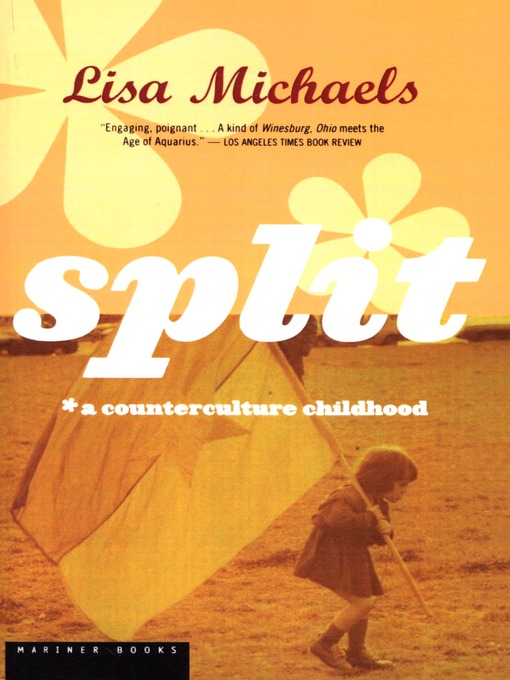In Split, Lisa Michaels offers a strikingly textured portrait of her days of communes and road trips, of antiwar protests and rallies —- and of what came after, for her parents and herself —- as the radicalism of the 1960s and '70s gave way to conservative times. As a young child, Michaels visited her father in prison, where he was serving a two-year sentence for his part in an antiwar protest. In the early '70s, she toured the country with her mother and stepfather in a customized mail truck, complete with oriental rugs and a wood stove, until the family settled in a small northern California town. Her father later moved to the Bay Area, where he worked in auto plants and served as a labor organizer. By the age of eight Michaels was a veteran leaflet-folder, and she consecrated her father's second marriage in a Berkeley park by reading from Quotations from Chairman Mao. Not surprisingly, Michaels grew up craving conformity —- giving her mother makeovers and arranging their secondhand furniture in inspired ways —- but she also came to share the values her parents held dear: independence, frankness, and unsparing self-examination. In the buttoned-up world of UCLA during the Reagan years, she went through a hippie revival phase, wearing batik dresses and Chairman Mao pins, a throwback amid the campus's Greek revivalists and young Republicans. Against that traditional backdrop her parents' longtime activism took on new meaning, and at twenty-two, much in the spirit of her upbringing, Michaels embarked on a trip through Asia. Observant, luminous, and wry, Split captures both the vulnerability and heady freedom of a counterculture childhood. It is a powerful blend of social reflection and personal reminiscence, a memoir that paints a clear-eyed and unforgettable picture of the ways in which the legacy of the '60s impacted one remarkable family.
- Arts & Crafts
- Fitness and Health
- Outdoor Recreation
- Biography & Memoir
- Business
- History
- All Nonfiction
- See all


